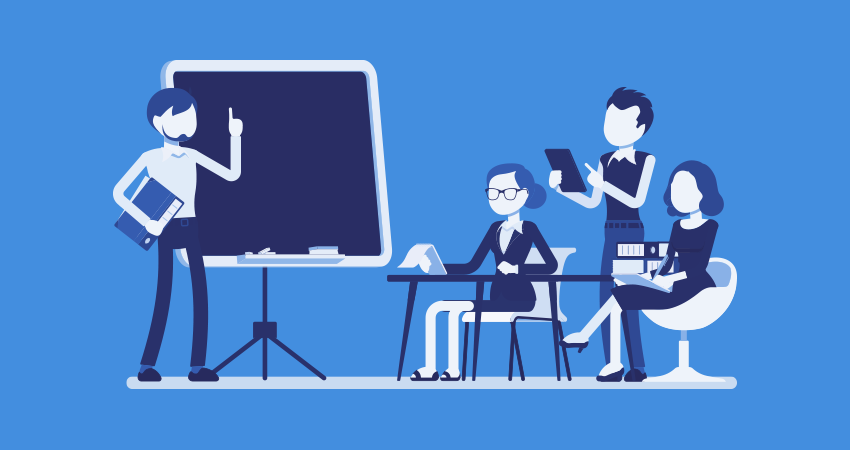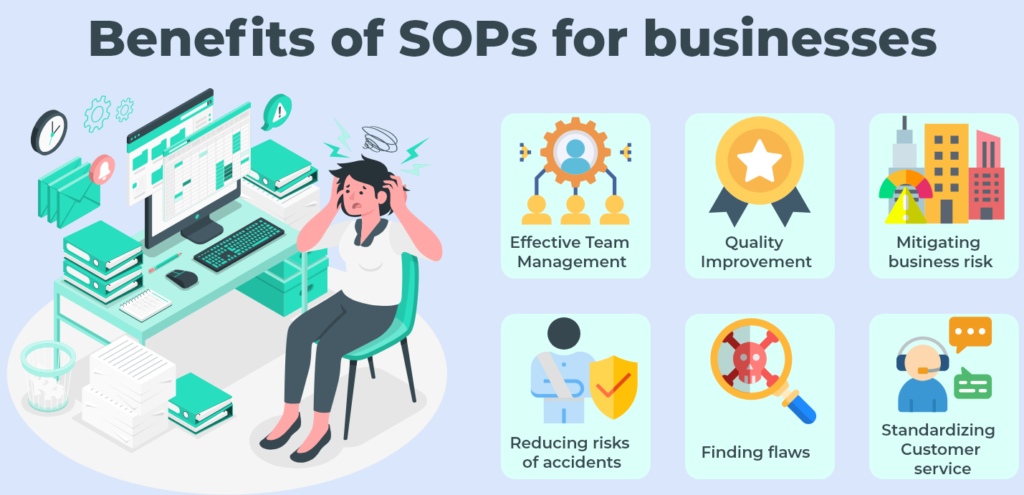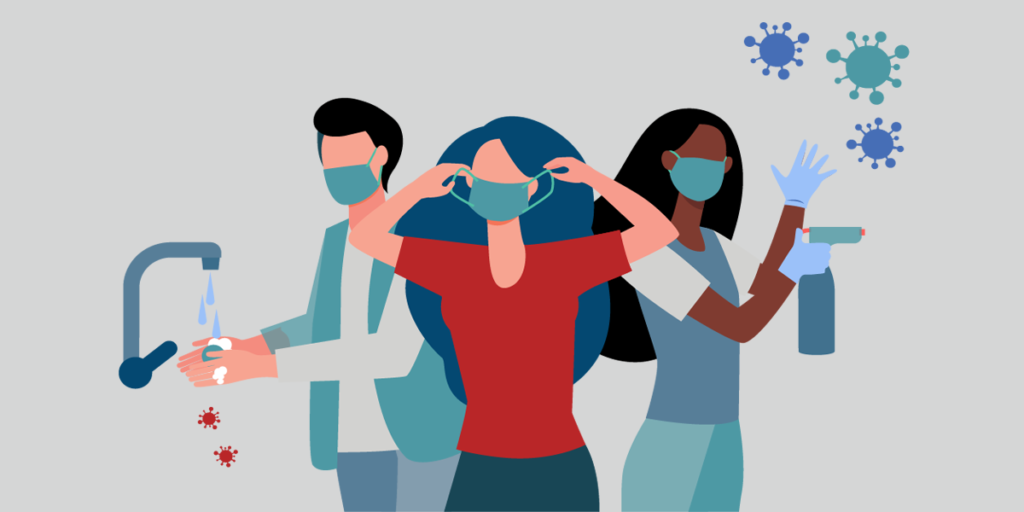Have you heard about the 80-20 rule? It suggests that 80 percent of your outcome comes from 20 percent of your input. In other words, investing your time and resources in the most effective and productive aspects of your business or life will bring you the most results. The same goes for training cleaning staff. Well-trained employees significantly help your cleaning business grow and make the most out of your labor costs.
Typically, you would wanna hire an already experienced cleaner so that you don’t have to train them from scratch. However, training cleaning staff includes much more than standard cleaning procedures, and that’s what we’ll discuss in this article today.
Why is Training Cleaning Staff Important?
Before we dive in to discuss the ‘what’ and ‘how’, let’s go over the ‘why’ first. Why is training cleaning staff important?
From a safety standpoint, it’s pretty evident why your employees need training – to reduce accidents and other risks. But from a business standpoint, an untrained employee will waste time and products, lose customers and ultimately hurt your business. Not to mention, you’ll never get the full value of the money you’re paying your employees. It’s one of the reasons why many cleaning businesses fail.
On the other hand, well-trained cleaning staff will provide a better customer experience, reduce risks and accidents and be more trustworthy. Overall, better value for your money.
The Basics of Training Cleaning Staff
Make sure your cleaning staff has the basics down.
What are the basics?
The basics are knowing company policies, insurance details, cleaning packages, services, discounts, etc. Also, how to greet customers, how to upsell extra services, introduce your company, basic pitches and formalities after a job. These are things that all of your cleaning staff should be familiar with.
These are pretty easy, and it shouldn’t take your employees much time to get the hang of it.
Create Standard Operating Procedures for Training Cleaning Staff
What are Standard Operating Procedures (SOPs)?
It’s basically a step-by-step guideline created and compiled by your business to help your cleaning staff carry out routine cleaning tasks. SOPs are pretty helpful in improving efficiency, accuracy and uniformity of performance among employees.
SOPs are one of the best tools for training cleaning staff, especially for inexperienced cleaners. And even if you hire experienced cleaners, they are still quite helpful, as they can better digest SOPs and provide an even better output.
To create SOPs, write down a step-by-step guide for each cleaning task and guide to use different equipment and chemicals. You can even make videos if you want/can.
But you don’t necessarily have to create your SOPs from scratch. There are plenty of free resources out there that you can use to compile an SOP or just download some existing free ones.
Create Checklists for your Cleaners
A checklist is a list of tasks for cleaners to keep track of their job. It can be of many kinds – Checklist of tasks for a cleaning service, checklist of supplies, safety and risk assessment checklist, etc.
For example, a checklist that defines what needs to be done in a standard cleaning versus a deep cleaning is crucial because it helps your employees know what to do and what not to do.
Maidily is a simple but effective scheduling software that helps you manage your cleaning business by saving you time on scheduling, job management, customer management and many more features that will help your cleaning business grow.
Safety & Protection Training for Cleaners
It’s not a requirement for cleaners to meet any training standard on safety and protection. But it’s good to train your cleaning staff about handling hazardous chemicals and what procedures to use while cleaning to reduce damages and risks.
Other than that, the following are some additional safety and protection training that your cleaners might need.
First-Aid Training for Cleaner
In any case of an accident or injury, your cleaning staff should know how to use the first-aid. Pretty basic stuff but supercritical.
PPE Training for Cleaners
PPEs weren’t a big deal in the pre-covid times. But in 2022, it is. So, your cleaning staff should know how to put on and handle PPEs effectively.
Risk-Assessment Training for Cleaners
Your cleaning staff must know how to identify and assess risks associated with a particular cleaning job in order to avoid them. For example, it’s better not to touch or tinker with hanging fixtures, like ceiling fans, painting or photo frames, because you risk breaking something expensive. That’s why training your cleaners how to assess these risks is crucial.
Pair New Hires with Experienced Cleaners
Always pair new hires with experienced cleaners for the first couple of cleaning jobs. It’s a great training wheel for them to learn and make mistakes under the supervision of an expert.
Training Cleaning Staff Interpersonal Skills
At the end of the day, don’t forget that your employees are humans, not robots. Apart from all the hard skills, your cleaners also need to learn soft skills to succeed in their job. Training cleaning staff the interpersonal skills required for their jobs is crucial to pull off difficult and complex situations.
What are these interpersonal skills your cleaners need?
- Communication skills
- Adaptability & flexibility
- Teamwork
- Decision making
- Problem-solving
- Creative thinking
- Conflict resolution
- Time management
Evaluate Performance and Exchange Feedback
You need to constantly evaluate your employees’ performance to help them improve and get better. The best way to do this is to call up clients and ask for their feedback. You can now use this feedback to better train your cleaning staff.
How to implement this feedback?
You can hold weekly or monthly group sessions with your cleaning staff to give and take feedback. You can also introduce fun learning activities like quizzes to get the most out of these sessions.
Courses for Training Cleaning Staff
If you hire a team of experienced cleaners, ignore this last tip. But if you hire a team of complete beginners, you might find cleaning training courses helpful. Some courses offer certification upon completion that can help your employees and business stand out and impress clients.
Nonetheless, if you don’t wanna spend any money, there are plenty of free resources and courses out there to help train your cleaners.
Final Thought
Training cleaning staff is a never-ending, constant process. The process gets easier if you hire experienced cleaners, but it still requires the proper practices and training wheels to help them reach their full potential.
This guide aims to do that. If you follow all or even just a few of the tips in this guide, you’ll notice a significant difference in your employees’ performance and the way you carry out your business.















[…] we choose our final candidate and hire them, there are a couple of things we always do – train our cleaning staff and have them perform a mock cleaning for us where we pretend to be the customer from start to […]